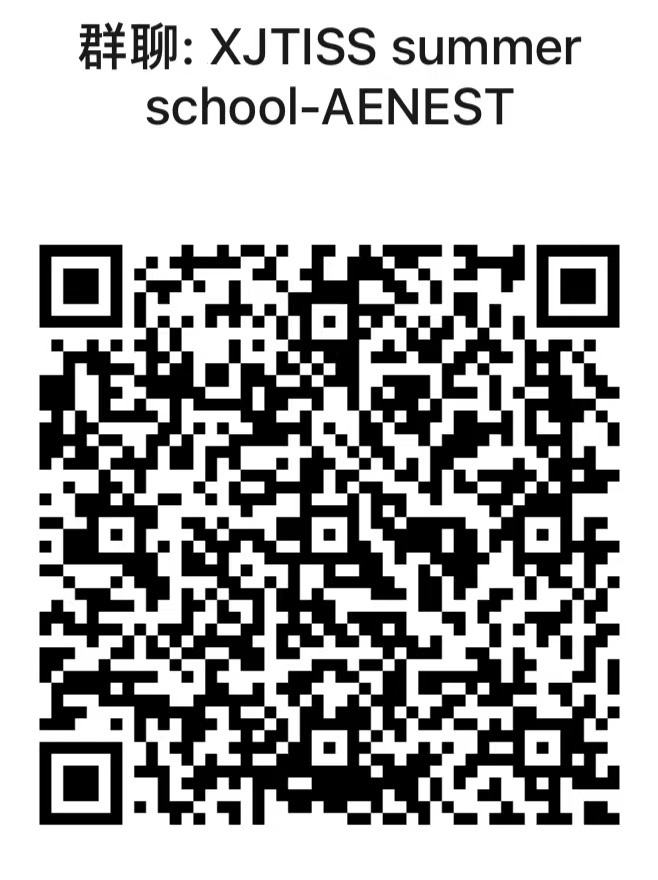Time: Beijing time 19:30-21:30, July 29 to August 26 2024, every Monday and Thursday
Class sessions: 9 sessions, each session lasting 2 hours
Course format: Free online course
Introduction:
This course aims to comprehensively introduce the basic principles, cutting-edge applications, and engineering practices of advanced energy and new energy storage technologies, reflecting the latest engineering applications in the field of energy storage technology both domestically and internationally. It covers recent advances in storage technology, application scopes, industry status, technological economics, and more. This course provides a foundation for students to grasp the fundamental principles of energy storage technology and stay updated on the latest developments in the field.
The course “Advanced Energy and New Energy Storage Technologies” consists of 18 class hours and covers topics including introduction, advanced energy conversion systems, principles of energy storage technologies and their engineering applications, and integrated energy systems. The teaching approach combines teacher-led lectures with student discussions. Teacher-led lectures will encompass fundamental concepts, principles, laws, and in-depth analyses of classic cases. Student discussions include two parts: in-class discussions and analyses of specific cases guided by the teacher, and a major team project completed through collaborative work. The team project involves independently chosen topics discussed thoroughly with the teacher. Assessment will be based solely on the team project.
Dong Li is the lead teacher of this course. He is an associate professor in the school of energy and power engineering at Xi’an Jiaotong University. The members of the teaching group are as follows:
Li Ming-Jia is a professor at Beijing Institute of Technology and also serves as a doctoral supervisor. Her research results have been published in internationally renowned journals in this field, many of which are indexed in JCR Q1 (Journal Citation Reports, Quartile 1). Several papers have been recognized as top 1% highly cited papers globally and have contributed to Emerging Research Fronts (ESI). Among them, over 15 articles have individually received citations exceeding one hundred times, with an H-index of 51. Additionally, more than 30 national patents have been granted, along with over 10 copyrights for software. She has contributed to the development of 5 national and industry standards and has co-authored one handbook. She has been invited to deliver keynote or special presentations at academic conferences both internationally and domestically on more than 30 occasions. She has served as session chairs at international conferences over 10 times.
Professor Majeed Mohamad is a professor in the Department of Mechanical and Manufacturing Engineering at the University of Calgary, Canada. He is a Fellow of the American Society of Mechanical Engineers (ASME) and an Executive Scientific Council member of the International Centre for Heat and Mass Transfer (ICHMT). He serves as the Director of the Centre for Environmental Engineering Research and Education (CEERE) and is the founder of the International Conference on Computational Heat/Mass Transfer and Momentum (ICCHMT).Previously, he served as Acting Dean of the College of Engineering at Alfaisal University in the Kingdom of Saudi Arabia (AU) and played a significant role in establishing the College of Engineering at Alfaisal during his tenure. He has authored over 350 papers and has written a book titled "Lattice Boltzmann Method Fundamentals and Engineering Applications with Computer Codes," published by Springer.
Professor Mikhail Sheremet is a professor at Tomsk State University in Russia, where he serves as the Head of the Department of Theoretical Mechanics. He is an expert in the field of heat and mass transfer, focusing on computational fluid dynamics, computational heat transfer, and convection. He graduated from Tomsk State University in 2005 and has since remained at the university, gaining extensive teaching experience in the field of energy and power.
Assistant Professor Mustafa Mohamad is an assistant professor in the Department of Mechanical and Manufacturing Engineering at the University of Calgary, Canada. He specializes in stochastic dynamical systems, uncertainty quantification, extreme event analysis, and data-driven methods in science and engineering. He graduated with the highest honors as a Bronze Tablet Scholar in 2012 and received scholarships and awards during his time at the Massachusetts Institute of Technology (MIT). Previously, he worked as a research scientist at Numerica Corporation, a private company, focusing on optimization and sensor scheduling algorithms for space and air defense applications.
Here is the course schedule.
Part |
Content |
speaker |
Affiliate |
Time in China |
1 |
Introduction to Advanced Energy and New Energy Storage Technologies |
Mikhail Sheremet |
Tomsk State University |
July 29 19:30-21:30 |
2 |
Thermal mass energy storage |
Ming-Jia Li |
Beijing Institute of Technology |
August 1 19:30-21:30 |
3 |
“Source-grid-load-storage” integrated energy system |
Ming-Jia Li |
Beijing Institute of Technology |
August 5 19:30-21:30 |
4 |
Basic mode of heat transfer process and the basic theory of heat energy conversion |
Mikhail Sheremet |
Tomsk State University |
August 8 19:30-21:30 |
5 |
The fundamental theory of fluid dynamics in energy storage processes. |
Dong Li |
Xi’an Jiaotong University |
August 12 19:30-21:30 |
6 |
Digital twin technology |
Mustafa Mohamad |
Tomsk State University |
August 15 19:30-21:30 |
7 |
Digital energy storage |
Mustafa Mohamad |
Tomsk State University |
August 19 19:30-21:30 |
8 |
Electromagnetic and electrochemical energy storage |
Majeed Mohamad |
Tomsk State University |
August 22 19:30-21:30 |
9 |
Mechanical energy storage |
Majeed Mohamad |
Tomsk State University |
August 26 19:30-21:30 |
Registration: please click the link https://www.wjx.cn/vm/tMoHmN1.aspx# or scan the QR code link below to register for this summer school

After completing registration, please scan the QR code using WeChat to join the XJTISS course group.

Certificate
You will receive a certificate issued by XJTU after you finish the course.
For more information, please contact Dong Li, dongli@xjtu.edu.cn